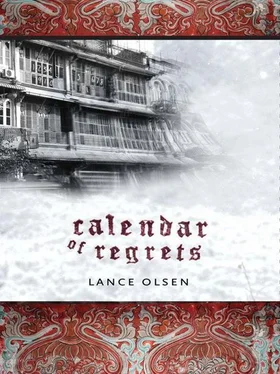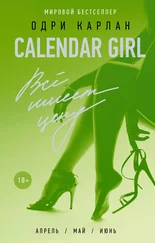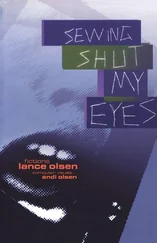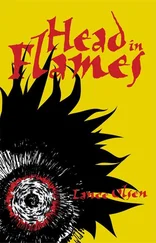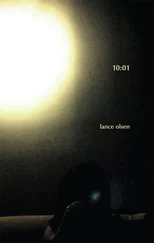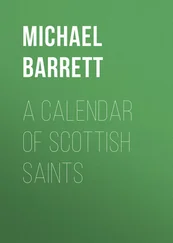Lance Olsen - Calendar of Regrets
Здесь есть возможность читать онлайн «Lance Olsen - Calendar of Regrets» весь текст электронной книги совершенно бесплатно (целиком полную версию без сокращений). В некоторых случаях можно слушать аудио, скачать через торрент в формате fb2 и присутствует краткое содержание. Год выпуска: 2010, Издательство: Fiction Collective 2, Жанр: Современная проза, на английском языке. Описание произведения, (предисловие) а так же отзывы посетителей доступны на портале библиотеки ЛибКат.
- Название:Calendar of Regrets
- Автор:
- Издательство:Fiction Collective 2
- Жанр:
- Год:2010
- ISBN:нет данных
- Рейтинг книги:3 / 5. Голосов: 1
-
Избранное:Добавить в избранное
- Отзывы:
-
Ваша оценка:
- 60
- 1
- 2
- 3
- 4
- 5
Calendar of Regrets: краткое содержание, описание и аннотация
Предлагаем к чтению аннотацию, описание, краткое содержание или предисловие (зависит от того, что написал сам автор книги «Calendar of Regrets»). Если вы не нашли необходимую информацию о книге — напишите в комментариях, мы постараемся отыскать её.
Calendar of Regrets — читать онлайн бесплатно полную книгу (весь текст) целиком
Ниже представлен текст книги, разбитый по страницам. Система сохранения места последней прочитанной страницы, позволяет с удобством читать онлайн бесплатно книгу «Calendar of Regrets», без необходимости каждый раз заново искать на чём Вы остановились. Поставьте закладку, и сможете в любой момент перейти на страницу, на которой закончили чтение.
Интервал:
Закладка:
We rented a small white farmhouse with black trim on two acres of barren land on the outskirts of town, and I got a job working at a 7-Eleven on American Boulevard. There was nothing to do there except wait for time to pass, then wait for time to pass again.
During lulls my boss, a fat man who always looked like he hadn't shaved for two days, told me about how good he used to be at football in high school. I was a fucking diety , he said. You should've seen me throw, man. I know it sounds like I'm bullshitting you, but seriously. You should've fucking seen me .
He would toss me a football that didn't exist and be winded.
I mopped floors and thought about nothing and two hours would disappear. I cleaned the Slurpee machine and the toilets and the sinks and there would go another one.
The teenage women left used tampons on the floor in the lavatory and giggled because they knew I had to clean them up.
Transparent, I sorted and stacked candies, beverages, sandwiches sealed in plastic, potato chips, nuts, crackers, jars of salsa, pet food, soups, cat litter, ice, cleaners, newspapers, magazines, cigarettes, packages of beef jerky, cheap CDs, maps, key chains, postcards.
Sometimes people would reach in front of me while I was working to get what they wanted without saying excuse me.
Sometimes I could see reflections of classmates I left behind in high school making faces at me when they thought I wasn't looking.
Did you know 7-Eleven licenses more than 7,200 stores in North America alone? my boss asked me across the store as I was disinfecting the handles on the refrigerator units one evening. 32,000 worldwide?
I did not.
It's like it's its own fucking country, man , he said, only not .
Petra singing about how Christ will love you after the rain stops falling, after the sun forgets itself, after the world scalds clean for the last time.
Eyes closed against the brightness.
Disciple singing about how today is already yesterday, tomorrow already come.
Listening.
I thought about how in Psalms it says: But God will smash the heads of his enemies, crushing the skulls of those who love their guilty ways. The Lord says: “I will bring my enemies down from Bashan; I will bring them up from the depths of the sea. You, my people, will wash your feet in their blood, and even your dogs will get their share.”
The cab easing to the curb past a zebra crossing on a road lined with dingy brick housing projects.
Mews, the driver saying. First block of flats on the right.
The door slamming shut behind us. The front window rolling down.
I stooped and peered in. The driver continued staring straight ahead. There were two dark purple stains on his neck. Birth marks, maybe. It looked like something with pincers had gone after him.
Bless you both, he said.
The window rolling up.
The cab beetling forward.
10:59. We waited in the foyer like we were told.
The front door had been bashed in. It hung off its hinges at an angle that suggested exhaustion. There were holes the size of soccer balls in the plaster like someone had taken a sledgehammer to them for fun. An upended desk missing its legs. A headless cobalt blue mannequin lying among garbage bags, newspapers, crushed beer cans, empty liquor bottles, ceramic shards, rebar, shreds of clothing, an overturned lamp, a torn-open teddy bear.
A wiry guy with a gray ponytail stepped out of the doorway at the far end. He was wearing jeans and a heavy beige Irish wool sweater and sneakers. His hands were in his pockets as though he were out for a stroll in the park. He gestured with his chin.
Back here, he said.
Five of them in what once had been the kitchen. Three men and two women, all in their late thirties, early forties, all in jeans and sweaters and sneakers. You could see they knew how little words meant, too.
Taking off our coats. Taking our seats at the table.
There was no heat. It was forty-five degrees, forty-five or fifty degrees. The thin guy in the ponytail assured us this would take just a few minutes, fifteen or twenty at most, then we would be on our way.
A black man with a Caribbean accent and an Asian woman with a French accent left. When they returned, they were carrying our gear.
The man kneeled before me, the woman before Iphi. I couldn't understand what they were doing at first. They were doing things, but I couldn't understand what it was they were doing even though I knew what it was they were doing.
They were explaining. That's what they were doing. They were explaining to us how to become thunder.
What is faith?
Faith is a heavy cloth. Canvas. Hemp.
How shall we know the things which we are to believe?
Cut the cloth into the shape of a vest. Cut another swath into fourteen pouches.
Why did God make you?
To sew the pouches onto the vest. To finish off the armholes, the trim.
What is God?
The ability to conceal the device beneath your clothing.
Where is God?
In the fragmentation effect.
Does God see us?
He sees the nails, bolts, ball bearings between layers of sheet metal bonded with glue.
If God is everywhere, why do we not see Him?
We do not need to. We feel His love instead.
What are angels?
On earth, we call them improvised initiators.
What do angels do?
One breathes and then all breathe sympathetically. In a chorus of beatific sound.
How does God control the angels?
Through the simple switch that runs down your sleeve.
What form does this switch take?
The red plastic button from a child's toy.
Who is the Redeemer?
We call Him a nine-volt battery.
What is the Redeemer's name?
Eveready. Duracell.
Where can we find Him?
In an old-fashioned radio. A smoke detector. A walkie-talkie. The Redeemer is everywhere.
What do you mean by grace?
The importance pressing against your ribs, tugging on your shoulders.
What is the Blessed Trinity?
One God in three Divine Persons: don't trip, don't bump into others, avoid sudden jolts.
Which are the means instituted by our Lord to enable men at all times to share in the fruits of the Redemption?
Give yourself over to distraction. Imagine nothing. Imagine it again.
What does Redemption feel like?
Everything becoming something else.
How is Baptism given?
Flex your thumb. It is that easy. It always has been. It always will be.
How is Baptism experienced?
You hear nothing. You see nothing. You sense no heat.
How, then, do you know Baptism has come?
It is as though someone has reached inside your skull and flicked off a switch. You will know it by not knowing it.
What is forgiveness?
Your heart expanding to the size of the universe in less than a second.
What is brotherhood?
Your heart joining with the hearts of all those around you.
What is Heaven?
Knowing that you can go home at last.
What will you find there?
The click. The silence. The peace. The voice whispering into your ear. The voice saying
February
~ ~ ~
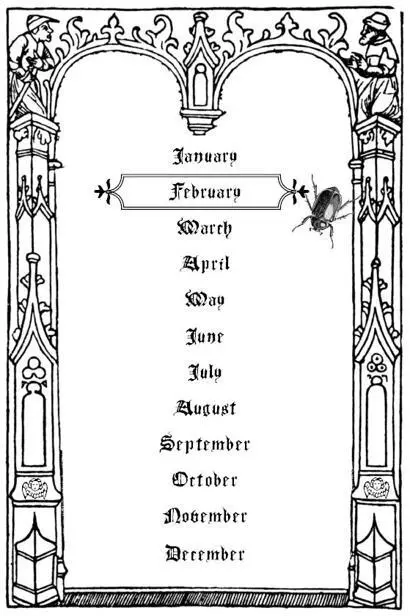
No, I'm sorry, I don't think so. My husband. The kids. You know . This to the girlwoman standing beside you at the sink in the restroom. You're most of a morning north of Rome. You went in to pee and, as you rinse your hands at the sink, she steps up beside you and asks if you happen to have a little extra room in your car. She asks politely, almost shyly, and yet in a tone that suggests the gesture isn't by any means new to her. She is heading to Milan for a shoot, she explains. She's a model. She looks like a model. Her purpleblack hair cut short and spiky. Her cheeks high, her skin olive and faultless, her eyes a coffeebean brown, her lips thin and lipsticked moist red like a movie star from the fifties. She has that quality models have: you glance at them and they look like one person; you glance at them again and they look like another. Their changeability makes you nervous when you see them on television or in the tabloids. In person, it's even more disturbing. Her accent is strong, but not Italian. Swiss, maybe? Dutch? She doesn't take no for an answer. She asks you again, this time saying she'd be happy to help with gas. She won't be any trouble. She promises. She enjoys children, loves entertaining them. Think of her as a nanny for an hour or two. She's sure you and your husband could use a break. She isn't wrong. You've been traveling for nearly two weeks, first around London and Paris, now here on a road trip from Rome to Venice. Truth is, you're all a little tired of each other. You all know what the others will say or do before they say or do it. You always have, but you are a little more conscious of knowing every day. You wouldn't admit this to each other, yet it's true. You could use the insertion of a fresh personality into your expedition. But you tell her Robert doesn't pick up hitchhikers. It's nothing personal. It's just family policy. Not with kids in the car. It makes sense. As teenagers in college, on spring break, you once thumbed all the way from New Brunswick to the Green Mountains outside Middlebury on a camping trip. You told your parents you were visiting friends in D.C. Here, though, you don't know how far to trust your intuitions. You and the girlwoman aren't looking at each other while you're having this conversation. Your eyes are meeting in the mirror. You're speaking to each other's reflection. You finish rinsing your hands, reach for two sheets of paper towel, wipe. She's petite, almost implausibly cute. She barely comes up to your chest. She's wearing a black turtleneck, an Army-surplus jacket, weathered bellbottom jeans with a large sexy tear above the right knee, a heavy Army-surplus daypack slung over her right shoulder. You've never seen such perfect skin. It isn't fair, you catch yourself thinking. Why should some people receive such skin and others not? You know if you asked her she would tell you she does nothing more to maintain it than wash her face twice a day with soap. You can tell with people like her. It's genetic, something deep in her cellular reality, and it lends to your suspicion that models are members of a different species. Genuine human beings never have such skin. Hers looks airbrushed. Maybe I could talk to him? she suggests. She isn't rinsing her hands. She isn't drying them. She's just standing next to you, talking. You feel strange because there is no particular social etiquette for moments like this. Other travelers are filtering in and out of the restroom behind you. Urine is squirting into water. Toilets are flushing. Someone is coaxing her child in Italian to climb up and do her business. Just inside the exit, the squat old woman responsible for keeping this place clean is sitting in a metal chair by the money basket, touching her arms delicately as if searching for the site of a bone fracture. She is treating her own body parts as if they were someone else's. Chlorine and shit cause each breath to be a surprise. Maybe he would make an exception? the girlwoman next to me proposes. You say I don't think so , and apologize again. You flash her a quick yet sympathetic smile and turn to leave. She follows you out into the day noisy with traffic on the Autostrada. Cold car exhaust worries your lungs. The girlwoman with the perfect skin isn't crowding you, not in a way that makes you uncomfortable in any case. She simply won't stop following, talking. Where are you from? she asks. Are you from America? She's always wanted to visit New York, she says. Maybe someday, if she works hard enough, her modeling career will take her there. Her mother and father would be very proud. They're very proud already, but they would be even prouder. They've given her nothing but support over the years. The girlwoman is very lucky — except that modeling isn't the easy and enjoyable enterprise some people seem to think. The hours. The sleep deprivation. The travel, travel, travel. You never know where you are. You wake up in the middle of the night in a hotel room and don't know if you're where you think you should be or if you're somewhere else. You can't remember the way to the bathroom. You're not sure which side of the bed to get out on. And when you're just beginning, when you're still finding your feet (isn't that the way Americans put it?), yes, when you're still finding your feet, there is a lot less money in it than most assume. There's also the daily pressure to keep down your weight. It's a cliché, but it's true. That's what makes clichés clichés — which, if you stop to think about it, is another cliché, isn't it? She knows girls who eat nothing but lettuce and cocaine. They look like they died a week ago. Like someone opened up their arteries and bled them. She'd never think of doing such a thing. There are limits. What would Papa think? She's just using the example to make her point. Her point is that everyone is jealous of models, but they shouldn't be. Models are like puppies in a pet shop window. They yip and jump around and look adorable and do what they have to do to get attention so someone will take them home and care for them. Call her Nayomi, she says as you cross the parking lot toward the gas pumps. With a y in the middle. She's always liked her name. Did you know it means pleasant in Jewish? That's what she says: In Jewish . Listening, walking, you spot Celan and Nadi standing by your rental car eating slices of pepperoni pizza Robert bought them inside the restaurant. This is the kids' favorite part of Italy, this fastfood pizza. The kind they tried in Travestere was only okay, they said, a little weird, but okay, but this pizza is beyond perfect. It tastes just like the stuff at Monetti's in New Jersey. The Parisians wouldn't know good pizza if it bit them on the butt, Celan said very loudly in a restaurant on the Champs-Elysées. Londoners put blueberries and corn on theirs, which as a family you agree is sheer madness, yet somehow appropriate for a people who are wont to live in bulky, sooty buildings while supporting the medieval tradition of kings, queens, carriages, and pomp. But this isn't what you're saying. You're not saying anything. You're just listening to the girlwoman going on and on, feeling increasingly awkward. Despite your silence, she's already figured out from your trajectory which one is your husband, which ones are your kids, already sped up imperceptibly, already outpaced you, is already talking with Robert. He is in the process of opening the back door for Celan and Nadi when Nayomi catches him off guard. He straightens, smiles the semi-smile he puts on for strangers stopping him in the street to ask directions to the nearest mailbox. It's a two-door 1962 Saab station wagon the color of desert sand on the outside, the color of Nayomi's lipstick on the inside. There is already rust around one of the front headlights. You rented it two blocks away from the hotel in Rome. Driving out of the city was a loud congested awfulness. It took two hours longer than you had anticipated. Nothing went the way it should have gone. Not one road followed a straight line. Just when you needed them, all the signs disappeared. By the time you pull alongside them, you can see Nayomi has already softened up your husband. You don't hold it against him. Partly it's her petiteness. Partly it's her faultless skin and dark eyes. Partly it's her vulnerability, the way she gives off the aura of a lost child. You can see the confusion in Robert's eyes. He's trying to figure out what just happened and why. While Nayomi recounts her plight, Robert glances at you quickly over her head. His semi-smile-for-strangers is stuck in place. You move around him, settle the kids in the backseat, set them up with comic books from home, join the girlwoman and your husband with a mind to apologize to her again and prompt Robert that it's time to get going. You have a lot of road to cover today. You've already made reservations at a pensione in Bologna for the night. Tomorrow you are due in Venice. You made the reservations back in the States. With the children in tow, you don't like leaving things to chance. When you were in college, you and Robert left things to chance all the time. You enjoyed the idea of every day arriving as a series of mild disruptions. With kids, chance has become something dangerous. The more of it there is, the less you take pleasure in it. Now chance seems unavoidable each minute you're awake. Your response has been to leave nothing to chance. But the more you plan, the more chance seeps in. Nayomi is saying how she understands what an imposition her request is. She really does. She understands completely if Robert says no. It would be totally cool, she says. That's what she says: totally cool . But she's already tired. She's been hitchhiking since dawn. She has to be at the shoot first thing tomorrow morning. Without our help, she doesn't know how she can possibly make it. Robert says something you can't hear. Nayomi shrugs in Italian. Looking at how he leans in toward her, you realize this is the corner of your husband's character you like least — the one where he believes this thing yet says that just to please people and avoid confrontation. He's been doing it ever since you met him. He's the kind of person who will buy a fake Seiko from a street vendor to make the vendor quit bothering him. You're sure it has something to do with how he has an unforgiving father and a perfectly nice mother who felt she had other things to accomplish in life than raise a boy. Because of his parents, he developed inside himself. Whenever he gets around other people, all he wants is to take the path of least resistance. That way he can escape them as fast as possible. Except for the kids and you. If you sat him down and asked him, Robert would say he'd like the world to be composed of exactly the four of you. An ideal quartet. He doesn't understand why he can't act like it is. He often does. You can see it now in the slope of his shoulders, how he's reflexively brushing his longish blond hair back with his right hand, already thinking: How much can it hurt? We drive north a few hours. We drop her off before we cut east toward Venice. She hitches the rest of the way into Milan. Look at her. Doesn't she remind you of us at her age? Someone needs to look after her. Plus it'll give the kids a taste of an authentic southern European. It'll be educational. By midafternoon, we'll be on our own again. She makes it to her shoot in time. Back in the States, she'll become an interesting family anecdote . Nayomi is holding out some money, offering it to Robert. He is holding up his hands in front of him, shaking his head no, he couldn't possibly take it. His smile is widening as he does this, meaning he's progressively more uneasy, progressively closer to giving in. You open your mouth to interrupt his thoughts, distract him back to this moment by the gas pumps, but it's too late. No, really , he's saying. It's fine. Really. Our pleasure. We'd love to have you join us . You examine him, searching for clues. You glance past him into the Saab. Celan and Nadi are fascinated by this new being in their environment. Nadi has forgotten she is eating pizza. She's holding what's left of her slice like a phone beside her ear, watching Nayomi. You signal to her. She recalls herself and recommences eating. You smile weakly and head into the store attached to the restaurant to pick up some snacks for later and a couple bottles of water. The cute young guy at the register openly stares at your breasts as he returns your change. You feel in equal parts amused by his lack of finesse and creeped out. When you return, everybody has taken his or her place. Nayomi is in the backseat with the kids. Robert is in the passenger seat up front, trying to manage the map unfolded across his lap. You walk around to the driver's side, slip in, fasten your seatbelt. You put the engine in gear, roll forward, start picking up speed. Soon you're on the Autostrada again, only this time with a hitchhiker sitting behind your husband. Cars shoot past you even though you're doing 110 kilometers, near 70 miles per hour. The sky is an amazing empty blueness. Hazy Tuscan hills rill alongside you, plowed fields, red-roofed white villas nestled among biomorphic swaths of dark green trees and pastures. Nayomi is talking. She doesn't seem able to do anything else. She is playing I Spy with the kids. I spy a castle, a vineyard, an eighteen-wheeler heading south . She reaches into her daypack and pulls out three sticks of fruity chewing gum, offers one to Celan, one to Nadi, peels the third for herself. The kids adore her instantly. During lulls in the game, Robert tosses her questions. He seems genuinely interested, but you know he isn't, that this is just what he does with strangers to pass time while appearing polite. If you asked him three hours from now what Nayomi's answers were, he wouldn't be able to tell you. Nayomi says she grew up in a dingy part of Munich, started university there, took an emphasis in political science, found herself working in a café in a neighborhood not far from where she had been a child. The economy was terrible back then. The economy is terrible now. Some things don't change. The fascists from World War Two are still in power, she explains. Many think they are not, but they are. This is the big secret nobody knows. It's just that they've learned how to dress like you and me, how to act graciously. Welcome, she says behind your husband, to the age of decorous totalitarianism. This is what governments are good at: organizing, manipulating, and exploiting human weakness. Everyone is unhappy. Some people know it. Some don't. But they are all unhappy with what the system has made out of them. Nayomi considered herself lucky to have any job at all. Many of her friends have none. The rich continue rolling around in their money like poodles in a Doberman's droppings, pretending Nayomi and her friends don't exist. When business was slow, she could sometimes sneak in some reading behind the counter. She likes political novels. Malraux. Sartre. But she likes political theory more. Why make fiction out of fact? Why not simply say what you mean? One day a well-dressed man walked in off the street. He was wearing a sharply cut pin-striped suit and tie and cufflinks. He took a table by the window and ordered an espresso and an Apfelkuchen. He was maybe in his early thirties and spoke German with an Italian accent. Have you ever thought about modeling? he asked. I have some friends in Italy. They could help. The pay's a thousand times better than what you must be making here . That's how it started. Nayomi had never thought about modeling. She was twenty-one then. Now she's twenty-three. Her life is changing every day. Yet she's also aware that twenty-three is already old for a model, that she has to move quickly or she'll be out of the frame by the time she's twenty-six. And, like she said, it's a much harder life than she had assumed, than anyone assumes. You should see how men look at you. Women, too. Both are angry with you for being who you are, but for different reasons. Even so, it's better than working back in the café. It's heavy, but it's cool. That's what she says: It's heavy, but it's cool . Nayomi plans to return to university after she's saved enough money to help out her parents and her, return with the knowledge of the world she's been collecting… only… only what about YOU? she asks out of the blue. You're on holiday, nicht? How long are you here for? What are you planning to see? You hear yourself beginning to make your life into a story. You feel yourself both revealing and hiding, hiding by revealing. You don't know why you're doing it, exactly, but it seems easy enough, and you warm to the exercise quickly. You hear yourself telling Nayomi about how you live in a small town in northern New Jersey called River Edge. How the river there is brown and sluggish. How no houses line its edge. Yet how the place is called River Edge nonetheless, perhaps for the same reason that Greenland is called Greenland. When you were in high school, you went down to the river with some friends, through the dense woods and undergrowth, across the railroad tracks, with a mind to skinny dip. Only then you saw the water rats gliding along the muddy banks and that was that. Still, the place isn't as ugly as all that might make it sound. River Edge is one of those quaint little suburbs filled with shady avenues and sweet little gingerbread houses in whose yards people rake leaves, shovel snow, trim hedges, wave at neighbors, take note of their environment, keep to themselves. Yours is near a park named Van Saun. Van Saun has a small zoo, a large pond, a miniature train for the kids, pony rides and, on summer weekends, a craft market. On Saturdays you and Robert set up a grill near the playground and cook out among the hoards of New Yorkers who come across the George Washington Bridge weekly to enjoy the illusion of countryside. The children love feeding and chasing the ducks. Your parents live four blocks east. Your sister lives twenty minutes away in a seedy town called Hackensack. You see them all every Sunday for dinner. Each morning Robert rises at six, showers, dresses, and commutes to Manhattan by car. He works in the financial district. You're a realtor. Well, not really a realtor. A realtor in your spare time, is more like it. A realtor in waiting. In between raising the kids and taking care of the yard and shopping and cooking and just, well, just keeping up with life. In college, you were a double major, psych and English, which gets you exactly nothing upon graduation. You almost flunked your statistics course. You had no idea you needed to know math to study psychology. You have a lot of fun with realty, though right now you consider it more a hobby than an authentic job. You hope things will adjust someday. Then you could afford to take trips like this with Robert and the kids more often. Next spring, during the off-season, you plan to visit Portugal. Not because of anything specific. Just because the name sounds so romantic. Portugal . You can hear the ceramics in it, the mosaic pavements and picturesque cafés in Lisbon. Someday you want to visit Scandinavia. You don't know why, but you have always dreamed of sitting in a dogsled rushing across a frozen lake in Lapland at dusk. Sweden, maybe. Maybe Finland. Finland sounds as if it must exist at the ends of the earth. The kids would have a great time. It would be what a real education should feel like. They'll be teenagers before you know it, and you want to make sure to enjoy them, give them something to enjoy, an imagination full of important family memories, before they're all grown up and gone, because you want them to be happy, but you also want them to remember you and Robert fondly, want them to return often. Celan becomes aware he is being talked about and tunes into your conversation. From nowhere, he blurts that you saw the place in London where they chop off people's heads with axes. Robert half turns in his seat to explain, again, that it's called The Tower and they don't do that sort of thing over there any more. Nadi adds they forgot to cook her hamburger in Paris. Remember, honey? you say over your shoulder. We call that tartare. Steak tartare . We call that gross, Celan says. Nadi and her brother break into laughter. Nayomi joins in. The French, she says, the French. You take pleasure in listening to more of your vacation sifted through your kids' heads, how they erase and rewrite, edit and augment. After a while, they get bored, distracted, produce a deck of cards from the treasure-trove suitcase unzipped in the cargo space behind the backseat. Nayomi initiates a game of Go Fish. She continues talking as she plays. You're glad she's along. Robert floats in and out of conversation with her. He asks if anyone is interested in checking out a little road-trip music on the radio. Nayomi claps her hands and says yes. You think of the Saturday afternoons following college when you two had nothing to do except lie around in bed reading The New York Times and listening to records. Jazz, mostly. The Beatles. Pink Floyd. Robert finished grad school, landed his job in lower Manhattan. You became pregnant with Celan and everything modified, attained layers, complex tonalities. You love it all and you feel disconcerted by it all, like the camera filming your life one day slipped on its tripod, like the frame skewed but the camera kept on rolling. Robert locates a station out of Florence. Procol Harum is singing about a whiter shade of pale. Behind the wheel, you coast gradually into the glassy blankness that always settles over you after you've driven for more than an hour. Everything grays into the automatic. It feels good, like staring at a television screen after all the shows have gone off the air. You are there and you are not there. You are thinking and you are not thinking. In the distance, the low blue mountains seem as though they've been water-colored across the horizon, they are so lacking in depth. Every so often you become aware of the manic eruption of the Italian announcer's voice between songs. He is speaking so rapidly it unnerves you. Every so often you become aware of a phrase passing between Robert and Nayomi. Celan and Nadi open their snacks. For him, a very large bar of milk chocolate. Before you went into the restroom, Nadi insisted on a kind she had seen in the little market next to your hotel this morning, something with marshmallow, toffee, and mysterious green bits mixed in it. She takes a bite and hates it immediately. It tastes like poop , she says, her eyes filling with tears of disappointment. Nayomi leans over and gives Celan a big hug, stage-whispers how special he'd be if he would agree to share his bar with his little sister. He tries to act aloof, proud of his newfound power, but crumples into giggles as soon as Nayomi starts making fart noises with her mouth against his neck. He gives up on the spot. Nayomi splits the chocolate bar in half, divides it between the kids, and eats the one with the mysterious green bits in it herself. You find yourself liking her more and more. After the card game, which doesn't conclude so much as trail off into late-morning, sugar-crash, perpetual-motion sleepiness, Celan and Nadi curl up on either side of Nayomi for a nap. Nadi lays her head down in her lap. Celan leans against her shoulder, knees to his chest, mouth soon parted slightly as if he just had an idea. Robert passes a bottle of water back to Nayomi, untwists the cap on a second, passes it to you. Nayomi continues talking, but you are no longer listening to what she's saying. You've lost interest. You would like to take a nap yourself. You enjoy hearing Donovan singing about the hurdy-gurdy man. The Rolling Stones about how she's a rainbow. The feel of one palm on the wheel, one gripping the cool water bottle. The exhilaration that you are somewhere special, somewhere very far away from those gingerbread houses and cookouts in River Edge. It comes to you that you have used up so much of your life in one place when there are so many other places to experience. It's so easy to let one day resemble another. You spend your time thinking about this until your stomach begins to remember lunch, then you check the clock on the dashboard. It is already 12:45. You ask Robert to consult the map, find a nice village for a nice meal. The kids can stretch their legs, burn off some energy. Once there, you'll pull your husband aside and suggest you treat Nayomi to lunch. She looks like she could use some kindness. It takes Robert a minute to pinpoint your current location, another to discover a good destination. Ah , he says. Got it. Let me just check here … He extracts the thick square guidebook from the glove compartment, flips through it, sees what he's looking for. Cool. Two more exits. It should be coming up in like five or six miles. Ficulle. A quote picturesque medieval town with a castle dating from the eighth to eleventh century and several lovely twelfth-century churches unquote. The kids'll love it. I can already taste the homemade tortellini . Your mind hangs in an inbetweenness, listening to Joe Simon singing about receiving a message from Maria. Jeannie C. Riley about problems with the Harper Valley P.T.A. A few minutes, and you begin easing into the far right lane, decelerating. You flick on your indicator. That's when Nayomi says it. Almost under her breath. Almost like she's doesn't quite mean to say it, but can't help herself. Not here , she says. Robert confers with the map. No, no , he says. This is it, all right. Up here, hon . Nayomi says politely, almost shy: No, it's not . Robert half turns to look at her. He is semi-smiling again. He shifts his position to show her our coordinates. Look , he says, pointing. See? We're here. Here's Ficulle. Here's the exit . And to you: Go ahead, hon. We're good . Nayomi says: We want one farther on . You say: Hey, guys, what do you want me to do? I've got to commit here . Nayomi doesn't lean forward. She doesn't look at the map. We want a different one , she says. Her tone makes you flick off the indicator, slide little by little back into traffic, saying, confused, but trying to make it sound comical: Would you guys please make up your minds or something? You glance over. Robert is looking back at Nayomi. Nayomi is looking past him, between you, through the windshield. Robert's face doesn't seem quite right anymore. It takes you a moment to figure out why. His fake smile remains in place, yet the part around his eyes has gone slack. It's as though he is expressing two different emotions at once. It's okay , Nayomi says. Everything's okay. We're just getting off a little farther on . Robert asks: What's wrong with Ficulle? No one responds. What's wrong with Ficulle? he says again. And then Nayomi is saying the next thing. At first it sounds like a compliment. Your children are so beautiful , she says. Vollständige wunderschöne Augen. That's what we say in German. Absolutely gorgeous eyes. They have their daddy's, don't they? Green like lichen . Robert, maybe beginning to get it, looks over at me and says: Thanks, but I don't get it. What just happened back there? He seems minimally agitated, as if he's doing a complicated calculus problem on a test. Nayomi says: They're like little angels. Mit gutem Benehmen. Very well behaved . She looks past us, through the windshield, considering. It's really odd , she says. From when I was a little girl, I always wanted my own. Lots of them, you know? Like that old woman who lived in the big shoe. My own shoe-full of angels. Guess it's because I feel I have so much love to pass around . Robert looks at you. You look at Robert. You are both trying to understand where this is going. I had this history professor in Munich? He used to say, “Every story is imperfect.” It was his refrain. He'd stand up there in front of the lecture hall and drone on and on about, I don't know, about how everyone had such high hopes for Germany after the war, say, but how in the end the western half just became your fifty-first state, and the eastern one of the U.S.S.R.'s pissoirs. “Ah,” he'd conclude behind his crazy gray Nietzsche mustache, this touch of sadness in his voice, “but, then again, every story is imperfect.” I had no idea what he meant. I think maybe now I do. Maybe he meant, you know, that you can't ever imagine how any story is going to turn out. Not the important ones, anyway. They're never going to be as attractive or successful or whatever as you imagined they'd be, nicht wahr? He must have been quoting someone. The story where I had a lot of kids became this story instead. The story of us all traveling through Tuscany one sunny afternoon in February. Isn't that the strangest thing? Okay, up here. This one… here … She is running her fingers through Nadi's hair as she speaks. Head down, Robert lays a palm on the back of his neck, massaging, reckoning. He says Okay and reaches over and turns down the radio. Obviously I'm missing something here . His voice is trying to sound other than it's sounding. It's trying to sound diplomatic, even good-humored. I mean, I apologize and all. But, um, what exactly's going on? Nayomi keeps looking between you out the windshield. We're just getting off the Autostrada for a little while , she says. I want to show you some of the countryside. It's mind-blowing. Really . Robert reckons some more. Look , he says. He thinks about how to put what he's about to say. We're really enjoying your company, Nayomi. It's been great getting to know you. And we're super appreciative for how you've been handling the kids. You're a natural. Only… I don't know how to say this. Excuse me if I seem rude or anything. But all we want to do is find a nice place to catch a bite to eat and then get going again. We have these reservations in Bologna, and … Nayomi says: Bologna? Wow. Did you know the San Petronio Basilica is one of the largest in the world? It's not very pretty from the outside, though. It looks like a dreary train station. I wouldn't recommend it . You hear something odd and glance up at the rearview mirror. What's that? you say. What? Nayomi says. What did you just put in your mouth , you say. Nothing , she says. You just put something in your mouth , you say. I saw you. Just some pills , she says. What kind of pills? Robert says. Vitamins , she says. You say: No they're not . Robert says: You just swallowed something . You say: She just swallowed something . Robert says: Are you taking drugs? Nayomi is squeezing her daypack between her calves. Her right hand has dipped inside. Here you go , she says, indicating the exit. This one. I have to go pee-pee , Celan says, semi-rousing from his nap. Later, munchkin , Nayomi tells him, patting Celan on the leg with her free hand. Go back to sleep. Träum was Schönes . He's too groggy to put up a struggle. He doesn't move except to scratch his nose, close his mouth, open it again. Are you telling my son he can't go to the bathroom? Robert says. Get off here , Nayomi says. Don't , Robert tells you. Get off here , Nayomi says, almost under her breath. You twist down the cap on your bottle of water and slide it under your seat. You grip the wheel with both hands. It occurs to you that you won't get off. It occurs to you that you will. It occurs to you that you won't, even as you are veering away from the Autostrada. What are you DOING? Robert asks, turning off the radio completely. I just asked you not to get off . You say: Stop shouting . Robert says: I'm NOT shouting . Less shy, Nayomi says: Don't slow down, don't slow down . You burst out onto a nearly empty road rushing through breathtaking landscape. Pastures slur past you. Villas. You open and close your eyes to clear your head. It seems like months since you've been on the highway. I like the speed , Nayomi says. Don't you? Robert says: What did we do that for? Nayomi says: It makes the world feel… what is the word in English? Besondere. Distinctive . You all sit there, trying to take in how your surroundings aren't the surroundings in which you existed less than a minute ago. You contract into yourselves. You see a distended vein pumping at the back of Robert's jaw line when you glance over. Nayomi continues taking in what's beyond the windshield, telling you which road to take each time an option presents itself. You focus on keeping your speed constant. When you fly up on a slow pale blue Renault, you flash your lights, swerve gracefully into the oncoming lane, pass it. You flicker through a medieval town before you know that's what you've done. The astonished faces of pedestrians, then vineyards meshing hills on either side of you through rows of Cyprus trees. The sun fluttering like a moth against a light. The road becomes increasingly curvy, starts climbing. You can hear the engine straining beneath you. Keep going , Nayomi says. Don't slow down . You are surprised to hear yourself saying, levelly: You want some money? Is that what you want? A silence balloons through the cab. Nayomi says: What? Robert says: What are you talking about? You say: Is that what you want? Nayomi says: I don't want your fucking money . You say: Because if it is, just say so. Let me pull over here. We'll give you all the money we've got on us . Robert shouts: Don't say that! To Nayomi he says: We aren't giving you shit . You don't listen to him. You're intent on forming your next sentences. It's important to get them right. We've got something like a thousand dollars in our suitcases. Travelers' checks. A nice necklace. Pull over and they're yours . Robert says: What the fuck are you DOING? You say: I'm offering Nayomi our valuables . Nayomi says: Fuck that. I don't want your bourgeois Dreck . You say: Then tell us what you DO want. Tell us, and you can have it . Nayomi says in her girlwoman voice: We just want to make a point . Robert says: We? Who's we? Nayomi says: You don't have to wake the children. They don't have to know about any of this . Robert says: Know about any of what? Nayomi says: I really did grow up in Munich and work in that café, you know. Just in case you're wondering. But the guy who walked in one day? He wasn't wearing a suit. You probably already guessed that. He wasn't really one person. There were, how do you say it, lots of him, versteht Ihr? They kept turning up. You know how university towns are. People from my political science and history and literature lectures. People those people introduced me to. Some had nothing to do with the university. But sometimes on Tuesday evenings we met after closing — you know, just to bullshit. It was really great . Robert says: Why are we hearing this? You say: Let her talk . Nayomi says: We realized there were others out there. You know, people who made us feel less lonely . You say: Nayomi. Listen. We're not trying to fight you here . Nayomi says: Before long we started asking ourselves how we could make a, you know, difference . You say: Nayomi … But Robert interrupts, putting on the voice of masculine authority he uses with the kids when they misbehave. Okay , he says, that's enough . And to you: Pull over . And to Nayomi: This thing has gotten WAY out of hand. It stops now . And to you: Pull over . And to Nayomi: You're getting out. I'm sorry. But that's what you're doing . You say levelly: I'm pulling over. I'm going to pull over . You take your foot off the gas pedal and that's when Nayomi extracts what she extracts from her daypack. Just for a second. Less than a second, actually. Just above the rim and then it's gone again. The event takes place so rapidly you're not completely sure you saw it. You're not completely sure you saw it, but you're completely sure you saw it. You replace your foot on the gas pedal. Nayomi takes her eyes off the road to glance down at Nadi. No , she says. That's not what's going to happen. Something else is going to happen . You follow her eyes in the rearview mirror. You say, less levelly: Nayomi … Nayomi glances up again and says: Did I already mention this is my absolute favorite part of Italy? The perfect blend of the natural and the human. I holidayed here last autumn with some of these friends I've been telling you about. It's fantastic getting to see it all once more . Robert says: Pull. The fuck. OVER . You say: Robert… stop . Nayomi says: We looked around and you know what we saw? We saw the protests in London. We saw your Lieutenant Calley doing what all you Americans secretly wanted him to do. We saw our own government unwilling to learn a thing. We saw people like you worrying about your fucking stupid little grills in your fucking stupid little suburban parks . Robert looks as if her words just backhanded him. Nayomi says: And we just realized… I mean, it just came to us. To make a statement, sometimes you have to pick up a weapon . The last syllable expands like a shockwave through the car. Robert goes immediately quiet. You sift through your choices. You will your children to remain asleep. You round the next bend on a steep hill and the back of a huge rusty tractor hurls up at you. You swing into the oncoming lane. Everyone jerks right. The tractor tumbles into the past, its angry shrinking farmer waving his tiny fist at you. A stream leaps into view off to the left, bobbing, then vanishes so completely you believe you may never have seen it. Robert isn't trying to look at Nayomi anymore. He is staring straight ahead, face drained. His hands grip the sides of his seat as if he's secretly bracing for impact. Checking her watch, a Spiro Agnew wearing red, white, and blue boxing shorts, Nayomi explains almost self-effacingly that elsewhere across Europe — in Germany and France, in Austria and Spain — versions of her are sitting in cars with versions of you. Each node of travelers is counting down. Just like astronauts in their capsules on the launching pad , she says. Just like your Alan Shepard on his way into space. This is how things get done . Robert's face is wearing an expression you've never seen on it before, like an invisible devil has just grabbed him by the throat. You sift through your choices. If he tries to lunge at her, she will set it off. If you try to signal anyone in the outside world, she will set it off. Your Adam's apple begins aching like you're about to cry. In a sense, Nayomi has forgotten you are even there. In a sense, she has started thinking of you as props, as parts of the plot she is constructing. She's still speaking, but not to you, not to your family. She is speaking to herself. Her language rushes on. She has just asked if anyone happens to know the story of Iphigenia. Who? Robert says. WHO? You know , she says. The myth. The Greek myth. There are lots of variations. Every one breaks your heart, but for different reasons. Euripides. Racine. Goethe. All of them are doing different things, but the thing is, they all care about how one person sometimes needs to give herself up for others, how sometimes that's the only way to get what you want, even though you won't be there to enjoy it. They all begin on a sunny day just like this one. They all begin just like this .
Читать дальшеИнтервал:
Закладка:
Похожие книги на «Calendar of Regrets»
Представляем Вашему вниманию похожие книги на «Calendar of Regrets» списком для выбора. Мы отобрали схожую по названию и смыслу литературу в надежде предоставить читателям больше вариантов отыскать новые, интересные, ещё непрочитанные произведения.
Обсуждение, отзывы о книге «Calendar of Regrets» и просто собственные мнения читателей. Оставьте ваши комментарии, напишите, что Вы думаете о произведении, его смысле или главных героях. Укажите что конкретно понравилось, а что нет, и почему Вы так считаете.
